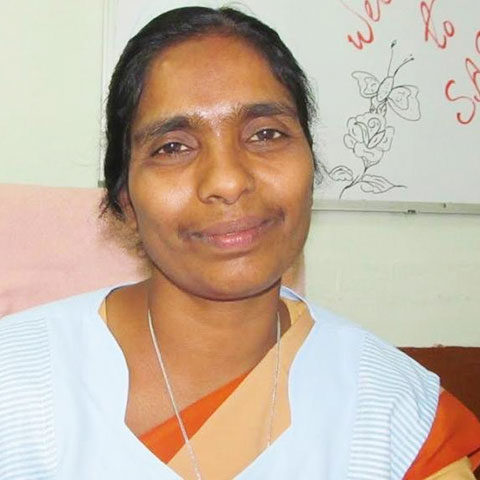
Sister Julia Thundathil’s story: Fighting the spread of leprosy
A chance encounter between a Catholic nun and a group of elderly people affected by leprosy in the central Indian state of Madhya Pradesh more than twenty years ago proved a turning point in the lives of the six leprosy patients – and many hundreds more like them.
“I found them on the roadside with worms coming out of their wounds.” Sister Julia Thundathil recounts of that visit to the village of Sendhwa. They had not eaten for days and their wounds were attracting flies. People often chased them away.
After speaking to them and being moved by their “heartbreaking stories,” the Augustinian nun and trained social worker returned to the convent to get medicine for their wounds and a bucket for bathing. This was not a singular act of compassion – the encounter inspired her to dedicate her life to working to help people affected by leprosy. And crucially, to break the cycle of transmission.
The enclave she went on to set up in Sendhwa is now home to more than 250 leprosy patients from 85 families.
Sister Julia believes that “the hasty spread of leprosy and stigma” is one of the biggest problems facing social workers in the area. She explains that “often to prevent discrimination patients try to hide their disease by not immediately seeking medical help on finding signs of leprosy. Stigma attached to leprosy leads to loss of employment even before manual labour becomes difficult due to disabilities that often result from late or no treatment. It also leads to exclusion from society, causing physical and emotional distress.”
To help halt the transmission of leprosy, staff at the enclave run early detection camps to identify those with the disease, so they can get immediate treatment. Patients are monitored and tracked, and receive health education.
“There are unfortunately still many barriers to stopping this preventable disease once and for all,” she says. “There is a shortage of accessibility to water and sanitation; there are delays in beginning treatment for patients, including insufficient medicine and not enough doctors; and there is the crippling social stigma and discrimination.”
As well as personally caring for those living with leprosy, Sister Julia tirelessly advocates for early diagnosis and treatment (through improvements in the government health system and leprosy screening) as well as programmes to reduce the level of stigma in the community. She believes both approaches are needed to reduce and ultimately stop the spread of the disease.
The social benefits gained from ending leprosy, she reflects, will be immense. “I believe that if we can successfully stop the spread of this crippling disease, we will see a day of zero transmission of disability which leads to zero disability, leads to zero stigma and a more inclusive society.’’